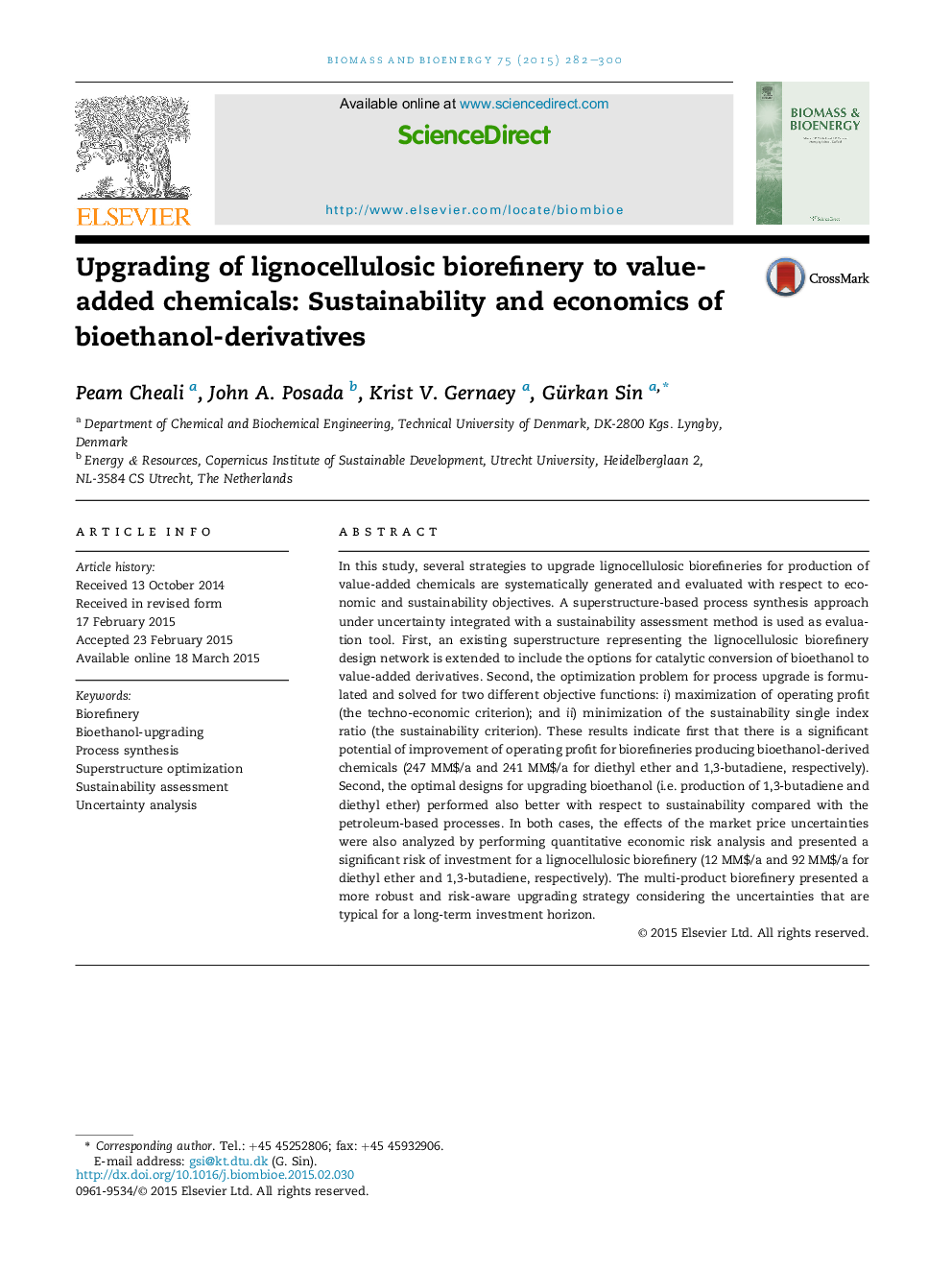| Article ID | Journal | Published Year | Pages | File Type |
|---|---|---|---|---|
| 676758 | Biomass and Bioenergy | 2015 | 19 Pages |
•An optimization based framework with multi-criteria sustainability and risk analysis.•A decision support tool for upgrading design of lignocellulosic biorefineries.•Bioethanol-upgrading to value added chemicals (1,3-butadiene and diethyl ether) improves the economic performance.•Flexible multi-product biorefinery design offers resilience against market price uncertainties.
In this study, several strategies to upgrade lignocellulosic biorefineries for production of value-added chemicals are systematically generated and evaluated with respect to economic and sustainability objectives. A superstructure-based process synthesis approach under uncertainty integrated with a sustainability assessment method is used as evaluation tool. First, an existing superstructure representing the lignocellulosic biorefinery design network is extended to include the options for catalytic conversion of bioethanol to value-added derivatives. Second, the optimization problem for process upgrade is formulated and solved for two different objective functions: i) maximization of operating profit (the techno-economic criterion); and ii) minimization of the sustainability single index ratio (the sustainability criterion). These results indicate first that there is a significant potential of improvement of operating profit for biorefineries producing bioethanol-derived chemicals (247 MM$/a and 241 MM$/a for diethyl ether and 1,3-butadiene, respectively). Second, the optimal designs for upgrading bioethanol (i.e. production of 1,3-butadiene and diethyl ether) performed also better with respect to sustainability compared with the petroleum-based processes. In both cases, the effects of the market price uncertainties were also analyzed by performing quantitative economic risk analysis and presented a significant risk of investment for a lignocellulosic biorefinery (12 MM$/a and 92 MM$/a for diethyl ether and 1,3-butadiene, respectively). The multi-product biorefinery presented a more robust and risk-aware upgrading strategy considering the uncertainties that are typical for a long-term investment horizon.
